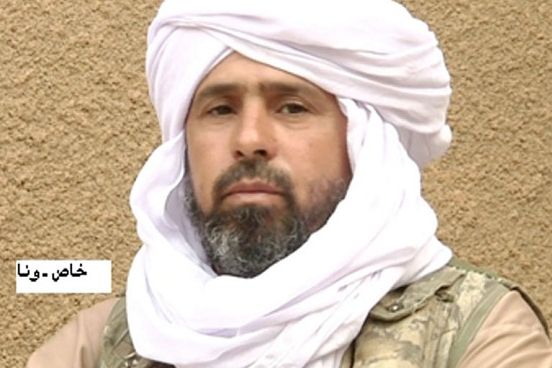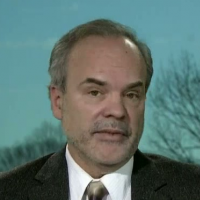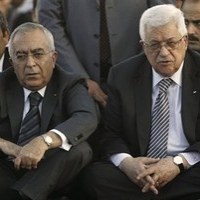![]()
Sun, Jan 20, 2013 | RubinReports | By Barry Rubin

The al-Qaida terrorists who laid siege to BP’s Amenas gas plant in Algeria were led by Mohamed Lamine Boucheneb. The attack was also aided by Egyptian Islamists who were involved in the September 11, 2012 attack on the U.S. consulate in Benghazi, eastern Libya. The Egyptian Islamists were reportedly all killed during the Algerian special forces raid on the gas plant. Boucheneb was killed on the second day of the siege by Algerian helicopter gun ships. (source: telegraph.co.uk)
One of the main themes of President Barack Obama in discussing his foreign policy is to claim the success of having destroyed al-Qaida. The fact that this organization has just pulled off the seizure of more than 800 hostages at an Algerian oilfield is only the biggest out of dozens of examples that shows this claim is untrue. The number of hostages killed is still unclear after Algerian soldiers stormed the oil installation on January 19 and killed all of the terrorists.
Certainly, Algeria has had a long civil war with Islamists, including the local al-Qaida affiliate, but this was an international operation headed by a Nigerian. Moreover, al-Qaida has been very active in Syria, Libya, Yemen, Somalia, and Mali, while showing continued capability to wage attacks elsewhere.
How, then, are we to understand al-Qaida’s survival and that fact’s relationship to U.S. policy? There are two key points to be made.
First, al-Qaida was not designed to take over state power in countries. It is the Islamist equivalent of an anarchist group, that is, one focused more on destroying existing institutions than on staging a revolution, becoming the government, and fundamentally transforming states. That is, of course, the function of the Muslim Brotherhood, the contemporary equivalent of the Russian Bolsheviks who took over Russia in 1917.
There is nothing surprising in al-Qaida popping up, staging some attacks, and then becoming less visible or being repressed. That is the nature of such groups and their strategies. It is thus easy to claim victory over them. The historic role of al-Qaida and the September 11 attacks on America helped set the stage for the domination of Middle East politics by Islamists today. That’s pretty significant. Moreover, al-Qaida operates more by inspiring others to launch attacks rather than directly organizing them, which also makes wiping out the group a rather difficult thing to do.
But claiming to defeat al-Qaida is like claiming to have definitively won a whack-a-mole game. The mole keeps popping up all over the place but never actually dominates the board.
What is especially worrisome here is that while the Obama Administration’s approach can be attributed to opportunism — We won! Our policy is going well! — it also appears to be based on a misunderstanding about the nature of groups like al-Qaida. It was designed to be decentralized and thus even the killing of Usama bin Ladin does not decapitate it.
There has been a real achievement: it is much harder for al-Qaida to attack on American soil. But, of course, part of the credit for this must also go to the Bush Administration, especially regarding the group’s strongest operations, in Afghanistan and Iraq. “Wiping out” al-Qaida, however, can be (falsely) claimed as a unique Obama achievement.
At a time when Communist revolutions were on the upsurge Che Guevara called for a policy of “Two, three, many Vietnams.” Today, Islamists in general and al-Qaida in particular are trying to do the same thing.
Second, and far more worrisome, is the Obama Administration’s concept of Islamism and terrorism. Under the Obama Administration concept, authored by CIA director-designate John Brennan, al-Qaida is bad because it attacks Americans but literally all other “mainstream” Islamists — including the Afghan Taliban, which helped in the September 11 operation — are basically good because they can be moderated and will keep the radicals from seizing power.
In other words, runs the message, we will be saved by the Muslim Brotherhood.
And if al-Qaida and a few similar groups are the enemy, explain the policymakers, then the “moderate” Islamists are our friend.
Yet this approach misses the point:
- In power, revolutionary Islamists will control not just a few gunmen but the full resources and armed forces of entire states.
- They can thus do far more strategic damage.
- Even under a “mainstream” Islamist government, Salafists can continue to operate — for example, attacking Christians in Egypt — and even (with Brotherhood approval) attacking the U.S. embassy.
- The U.S. government has even facilitated the arming of non-al-Qaida Salafist groups in Syria. And when its attempts to isolate the al-Qaida affiliate there failed because of the opposition of those same groups, the White House just shrugged its shoulders and did nothing different.
And let’s not forget the killing of American officials in Benghazi, Libya, where, the Obama Administration essentially argued, it couldn’t act decisively to save them because it would have hurt the feelings and status of a U.S.-implanted government. Note, too, that this moderate, non-Islamist government is incapable of catching or punishing those responsible.
Before Iran’s revolution, for instance, there were revolutionary groups that sometimes attacked Americans in Iran. During the transition, when the regime needed to consolidate power, it seized those in the American embassy as hostages. And there have always been even more extreme Islamist forces in Iran that don’t run the government. So is having a “mainstream” Islamist regime in Iran better?
In other words, to summarize the situation, what if you have both radical Islamist governments and ongoing terrorism from al-Qaida? Isn’t that disastrous?
An organization that can seize about 1,000 hostages in the middle of Algeria, a country whose regime has been so tough on radical Islamists, is not dead. And who needs the rag-tag gunmen of al-Qaida when people with the same basic worldview run all of Egypt and soon Syria as well?
To a greater or lesser extent, all of the people of Iran, Egypt, the Gaza Strip, Lebanon, and probably soon Syria are hostages. Turkey, too, has gone down this road.
There has been a debate based on the image of Islamists “hijacking” Islam. Well, the Obama Administration sees nothing wrong with Islamists hijacking entire countries, an action that will do a great deal to ensure that their interpretation of Islam becomes hegemonic as well, spreading their influence to more states as well.
 Barry Rubin is director of the Global Research in International Affairs (GLORIA) Center and editor of the Middle East Review of International Affairs (MERIA) Journal. His latest book, “Israel: An Introduction“, has just been published by Yale University Press. Other recent books include “The Israel-Arab Reader” (seventh edition), “The Long War for Freedom: The Arab Struggle for Democracy in the Middle East” (Wiley), and “The Truth About Syria” (Palgrave-Macmillan). The website of the GLORIA Center and of his blog, Rubin Reports. His original articles are published at PJMedia.
Barry Rubin is director of the Global Research in International Affairs (GLORIA) Center and editor of the Middle East Review of International Affairs (MERIA) Journal. His latest book, “Israel: An Introduction“, has just been published by Yale University Press. Other recent books include “The Israel-Arab Reader” (seventh edition), “The Long War for Freedom: The Arab Struggle for Democracy in the Middle East” (Wiley), and “The Truth About Syria” (Palgrave-Macmillan). The website of the GLORIA Center and of his blog, Rubin Reports. His original articles are published at PJMedia.



 RSS
RSS










Latest Comments
Hello Mike, Thank you for your positive feedback to the article. I felt there wasn’t too much critical analysis of ...
Thanks for this considered and well constructed article. A follow up article on the manner in which the editorial contro...
THE CLUELESSNESS OF CLAIMING THAT OBAMA'S MIDDLE EAST POLICIES WERE A FAILURE CANNOT BE FURTHER FROM THE TRUTH, WHAT THE...
As long as Obama is the president of the usa do not trust the us government......
Thank you for an good read....